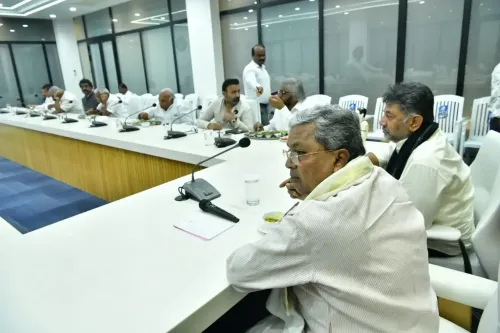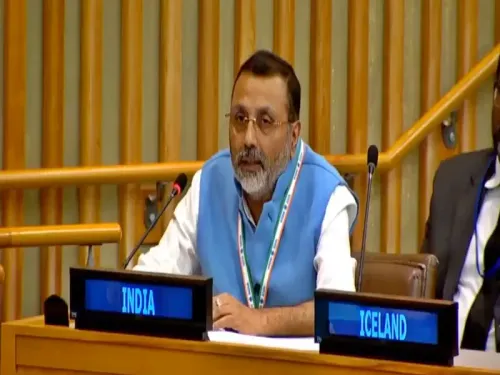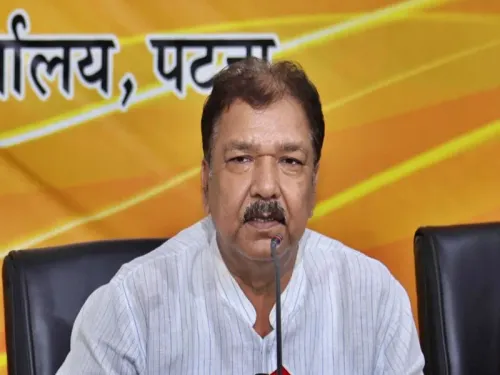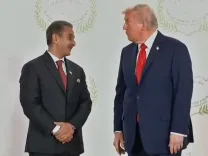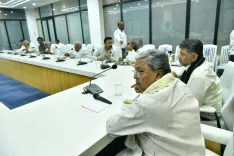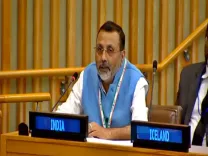Did FairPoint Misplace Outrage Over Real Oppression?
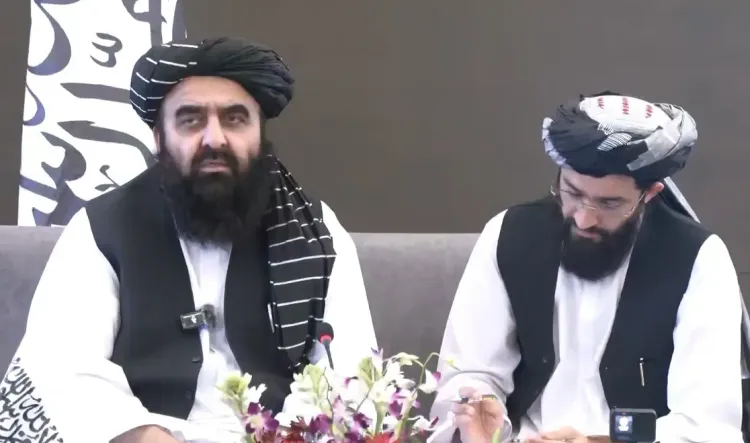
Synopsis
Key Takeaways
- Exclusion of women journalists from Afghan Embassy event raises serious concerns.
- Systematic oppression of women in Afghanistan under Taliban rule continues unabated.
- Political leaders in India divert attention from the real issue.
- International condemnation of Taliban's treatment of women persists.
- Women bear the brunt of crises and disasters in Afghanistan.
New Delhi, Oct 12 (NationPress) The Afghan Embassy made an unexpected adjustment after receiving criticism for excluding women journalists from a media event in New Delhi.
This shift might have been influenced by the hosting nation's pressure or a strategic move to present a 'humane face' amid international scrutiny following aggression from Pakistan. However, the evolving circumstances do not alter the reality: the Taliban fundamentally oppose the concept of women's freedom.
In Afghanistan, women face persistent discrimination—even during crises. Against this dismal backdrop, the decision to bar women journalists from a diplomatic event on October 11 in New Delhi appeared to be a small yet predictable extension of an extensive and cruel ideology.
Surprisingly, the controversy in India took an unusual turn. Instead of focusing outrage on the Taliban's misogynistic practices, numerous politicians leveraged the incident to criticize the Modi government, thus transforming a human rights concern into a political battleground.
Among the first to seek answers from Prime Minister Modi was Congress leader Priyanka Gandhi Vadra, who accused the government of permitting such discrimination on Indian soil and failing to uphold women's rights.
Trinamool Congress MP Mahua Moitra escalated the criticism, questioning why the press conference was even allowed to take place. "You advocate for Beti Bachao, Beti Padhao, women's empowerment, and dignity," she stated, "yet you roll out a red carpet for a delegation that disrespects women."
The backlash was intense. The Ministry of External Affairs clarified that the Afghan Consul General's office in Mumbai independently managed the invitations. Since the embassy premises are located on Afghan territory, they fall outside Indian jurisdiction.
Despite this explanation, the controversy persisted. Opposition leaders continued their attacks on the Centre, neglecting the deeper issue—the ongoing and systematic oppression of women under Taliban rule.
Since regaining power in 2021, the Taliban have deprived Afghan women of nearly all fundamental rights. Girls over 12 are prohibited from attending school, women face restrictions on employment, and even those in humanitarian roles are ordered to remain at home.
Books authored by women have been purged from university libraries. Women are banned from parks, gyms, and even public baths. They cannot travel long distances without a male guardian. Every aspect of daily life has been restricted under the Taliban's narrow interpretation of Sharia law.
The consequences are devastating, especially during disasters. When catastrophic earthquakes struck Afghanistan's Herat province in 2023 or the recent one in September, which claimed thousands of lives, women disproportionately suffered.
In deeply conservative regions, rescue operations were hindered as men hesitated to assist women in distress. Aid workers reported that food and medical aid were first distributed to men, leaving women without assistance. Some women who lost their families were barred from living independently in tents, as this violated Taliban regulations. The very regime that claims to "protect women's honor" allows them to suffer alone in rubble.
International organizations have repeatedly raised alarms about the restrictions imposed on Afghan women and girls. The United Nations Human Rights Council described the situation in its July 2024 report as "grave, worsening, widespread, and systematic oppression".
The report urged the Taliban to reverse policies that exclude females from education, employment, and public life. Nevertheless, the Taliban remain unyielding, asserting they are upholding "Islamic values" and "Afghan culture".
Ironically, while global condemnation focuses on the Taliban's brutality, the incident in India has become a tool for domestic political maneuvering. Instead of uniting to denounce the Taliban's archaic mindset, many opposition leaders have opted to criticize the Modi government.
Rahul Gandhi, Leader of the Opposition in the Lok Sabha, directly targeted the Prime Minister, stating on his X handle, "By permitting the exclusion of women journalists from a public forum, you convey to every woman in India that you lack the strength to advocate for them. Every woman in our nation deserves equal participation in all spheres. Your silence in the face of such discrimination reveals the hollowness of your slogans regarding Nari Shakti."
He implied that the Indian government was at fault—an angle that risks diluting the moral message. The debate has shifted, according to Rahul Gandhi and his supporters, from identifying who is committing the injustice to determining who is responsible for hosting them!
While the Opposition leaders may have identified a critical issue with the October 11 no-women-allowed press conference at the Afghan Embassy, the answer also lies in the subsequent event, which sources suggest occurred with a prompt from the Ministry of External Affairs.
Though the Taliban may have adapted in response to the situation, the overarching question remains about the discrimination faced by women in that country.
(Deepika Bhan can be contacted at deepika.b@ians.in)
--iANS

